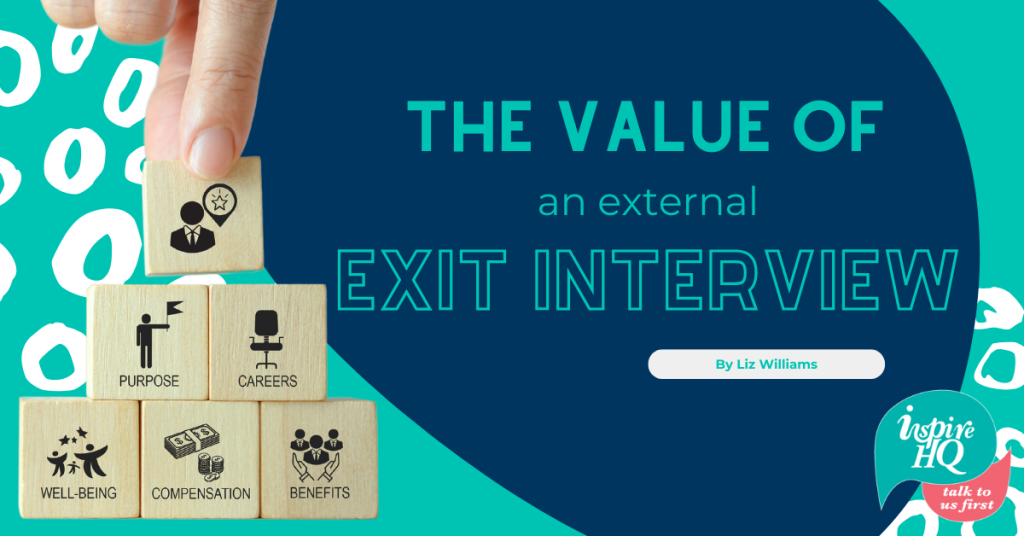It is no surprise that leaving a business, voluntarily or involuntary, brings up all kinds of emotions and reflections. For some employees the process of ‘moving on’ may spark nostalgic notions, or in some cases painful perspectives.
Questions that can be asked are “How do we turn this into something useful?” “What exactly can we gain from tapping into their experience?” And, “How do we get the ‘truth, the whole truth and nothing but the truth’ about the full employee journey?”
How good are you at drawing out the additional information and hearing feedback that can sometimes be painful, especially when it highlights areas in your own approach that needs improvement? Employee perception can vary, some examples being ‘feedback falls on deaf ears’, ‘honest two-way communication is poor’ or the classic cultural norm perspective that ‘feedback is negative’. We might even have to navigate around the fact that some of these factors have led to a separation in the first part.
Add in the complexity that the majority of people are trying to maintain ‘LinkedIn’ connections, preserve professional relationships and keep positive reputations. Indeed, there is quite a lot to be gained from honest raw feedback – however, it can make it challenging to maintain good relationships.
Gaining the required level of transparency that provides critical metrics about how a business is doing with its people experience, can be a real art form.
As an external HR consultant, we are often asked to conduct Exit Interviews on behalf of businesses. Not only does this put time back in internal calendars and allow critical employees invaluable time to focus on their own areas of genius, it also means that we offer exiting employees something that is a little unique, and we believe it gives us a few significant advantages:
Neutral and Comfortable Environment: Conducting exit interviews through an external consultant creates a neutral space, making employees more likely to share honest, actionable feedback without the pressure of discussing their experiences with internal colleagues.
Unbiased Insight with No Vested Interest: External consultants engage purely to understand the employee journey without the need to defend or rationalize experiences. This approach enables them to gather comprehensive feedback on what worked, what didn’t, and employees’ overall perception of the business, fostering genuine, open dialogue.
Focused Feedback Analysis: By avoiding the distractions of specific grievances or personal relationships, external consultants can focus on the overarching story each exit interview tells. They help identify meaningful themes that reflect broader trends within the organization, rather than isolated issues.
Holistic View of the Employee Lifecycle: External HR consultants provide a unique perspective by mapping feedback across the employee lifecycle—from onboarding to exit—helping businesses understand critical touchpoints that influence overall satisfaction and retention.
Valuable Patterns and Trends: With the ability to synthesize insights from multiple interviews, external consultants can identify recurring themes and systemic issues that might otherwise go unnoticed, providing strategic recommendations for improving workplace culture and reducing turnover.
What we don’t do in an exit interview is jump to conclusions, we know that a single conversation or piece of feedback doesn’t necessarily tell the full story, and may not be a call to action – however, a few consistent conversations or multiple pieces of feedback allows us to provide meaningful/ actionable insights for the business.
Do you need to consider your Exit Interview needs – how are you tracking trends/ themes or concerns and what strategies are you implementing to address these? The value is not in the specific words that one employee uses to describe their journey or simply tick a box and make a file note. The value is when there is trust and a level of comfort to speak freely, so that the business can learn from it.
What do we need to keep doing? |What are our opportunities to do better? |What is critical that we stop doing?


